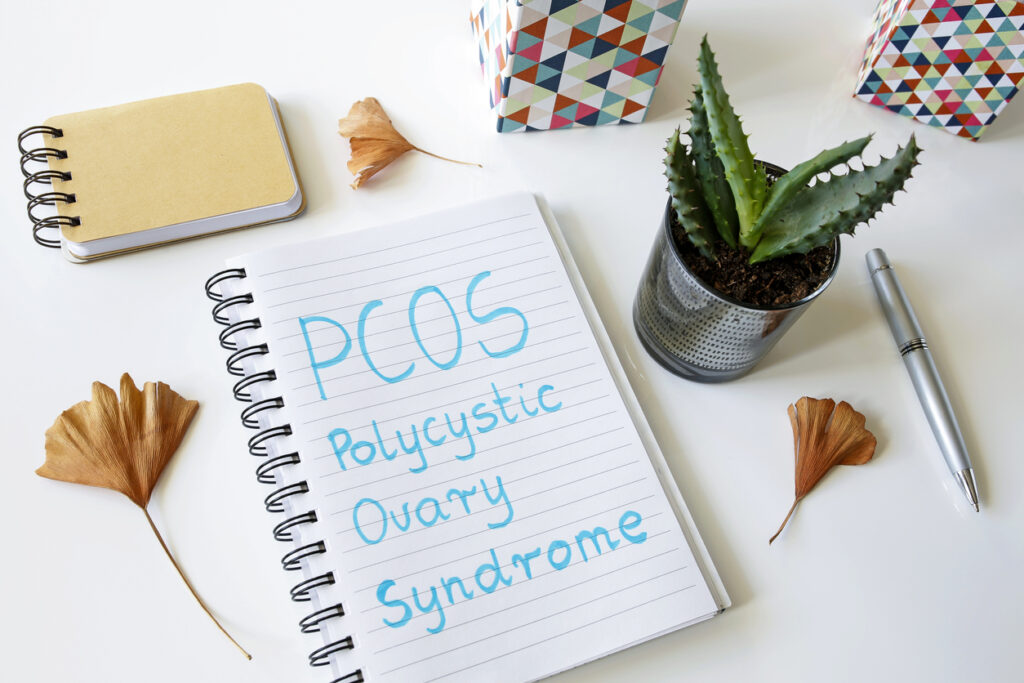Many women ask, “How do I know if I have high testosterone?”
High testosterone in women may be more common than you think.
In today’s blog, I talk about signs of high testosterone and what you can do about it.
Testosterone is often referred to as the “male hormone,” but women also produce testosterone in smaller amounts.
But high levels of testosterone in women can lead to a range of symptoms, including unwanted hair growth, acne, irregular periods, and mood changes.

In this blog post, we will discuss the top five symptoms of high testosterone in women and what can be done to fix the situation.
- Unwanted hair growth
Excess testosterone can stimulate hair growth on the face, chest, and abdomen.
This condition, called hirsutism, can be distressing for women and affect their self-esteem.
However, there are several treatments available, including laser hair removal, electrolysis, and prescription creams that slow hair growth.
- Acne
High levels of testosterone can lead to an increase in sebum production, which can cause acne.
Women with high testosterone levels may experience more severe and persistent acne breakouts. In this case, over-the-counter acne treatments may NOT be effective, and it’s best to consult a dermatologist for personalized treatment options.
- Irregular periods
Testosterone can interfere with the normal hormonal balance that regulates menstruation, leading to irregular periods or even the absence of menstruation altogether. Hormonal birth control, such as the pill, can help regulate periods and decrease testosterone levels.
But we do recommend seeking out lifestyle and nutrition appraoches to lowering testosterone before taking any medications. Please speak to your doctor first.
- Mood changes
High levels of testosterone can lead to mood changes such as irritability, anxiety, and aggression. Women may also experience a decrease in self-esteem and confidence.
Most people are not aware how impactful sex hormones can be for women during peri-menopause.
And many women are brushed off when they go to doctors with mood issues during peri-menopause.
Don’t let that happen to you! Speak to your care provider!
Engaging in stress-relieving activities such as yoga or meditation, and seeking the help of a mental health professional may be beneficial in managing these symptoms.
- Masculinization of the body
In some cases, high testosterone levels can lead to masculinization of the female body, including increased muscle mass, a deepening voice, and a decrease in breast size. This condition is called virilization and is usually treated with medications that lower testosterone levels.
Perimenopause is a transitional period that precedes menopause, during which a woman’s body undergoes various hormonal changes.
These changes can lead to an increase in testosterone levels, which can cause a range of symptoms, such as unwanted hair growth, acne, and mood changes.
Now let’s discuss some natural ways to reduce high testosterone levels in women during perimenopause.

- Diet modifications
Certain foods can help regulate hormone levels and reduce testosterone levels. Foods such as flaxseeds, soy products, and spearmint tea contain compounds that can help lower testosterone levels.
Additionally, reducing sugar and refined carbohydrate intake can help regulate insulin levels, which can in turn help regulate testosterone levels.
- Exercise
Regular exercise can help regulate hormone levels and reduce testosterone levels. Studies have shown that high-intensity interval training (HIIT) can help lower testosterone levels in women. Resistance training, such as weightlifting, can also help build muscle mass, which can help reduce testosterone levels.
- Stress management
Stress can cause an increase in testosterone levels. Therefore, managing stress levels through techniques such as meditation, yoga, or deep breathing exercises can help regulate hormone levels and reduce testosterone levels.
- Herbal supplements
Some herbal supplements, such as saw palmetto, chaste berry, and licorice root, have been found to help reduce testosterone levels in women.
However, it’s important to consult with a healthcare provider before taking any herbal supplements as they can interact with medications or cause side effects.
- Sleep
Getting enough sleep is crucial for hormone regulation.
Studies have shown that sleep deprivation can lead to an increase in testosterone levels.
Therefore, ensuring that you get at least 7-8 hours of quality sleep each night can help regulate hormone levels and reduce testosterone levels.
Although high testosterone can be tough to deal with, there are several natural ways to reduce testosterone levels, such as modifying the diet, exercising regularly, managing stress, taking herbal supplements, and getting enough sleep.
It is also important to note that high testosterone in women is associated with a condition called PCOS.
Polycystic Ovary Syndrome (PCOS) is a complex endocrine disorder affecting women of reproductive age.
While it manifests in various ways, one of the hallmark characteristics of PCOS is an imbalance in hormone levels, particularly elevated testosterone.
In women with PCOS, the ovaries produce higher-than-normal levels of testosterone.
This hormonal imbalance disrupts the delicate interplay between various hormones, such as estrogen and progesterone, leading to a cascade of symptoms.

In addition to the symptoms of high testosterone listed above, there are a few other symptoms associated with PCOS that you should be aware of:
- Male-pattern baldness: Thinning hair or hair loss similar to that seen in men can be observed in some women with PCOS.
- Weight gain and difficulty losing weight: Hormonal imbalances can make it challenging for women with PCOS to maintain a healthy weight.
It’s important to consult with a healthcare provider before making any significant lifestyle changes or taking any supplements to ensure that they are safe and appropriate for you.
But the approach to hormonal imbalances should always start with diet and lifestyle modifications.
And we are here for you!
Our program, “Sail Through Peri-Menopause (and beyond)” may be just what you need.
We do not accept that women have to suffer through symptoms of high testosterone!
Click the link below to learn more about our “Sail Through Perimenopause” program.
